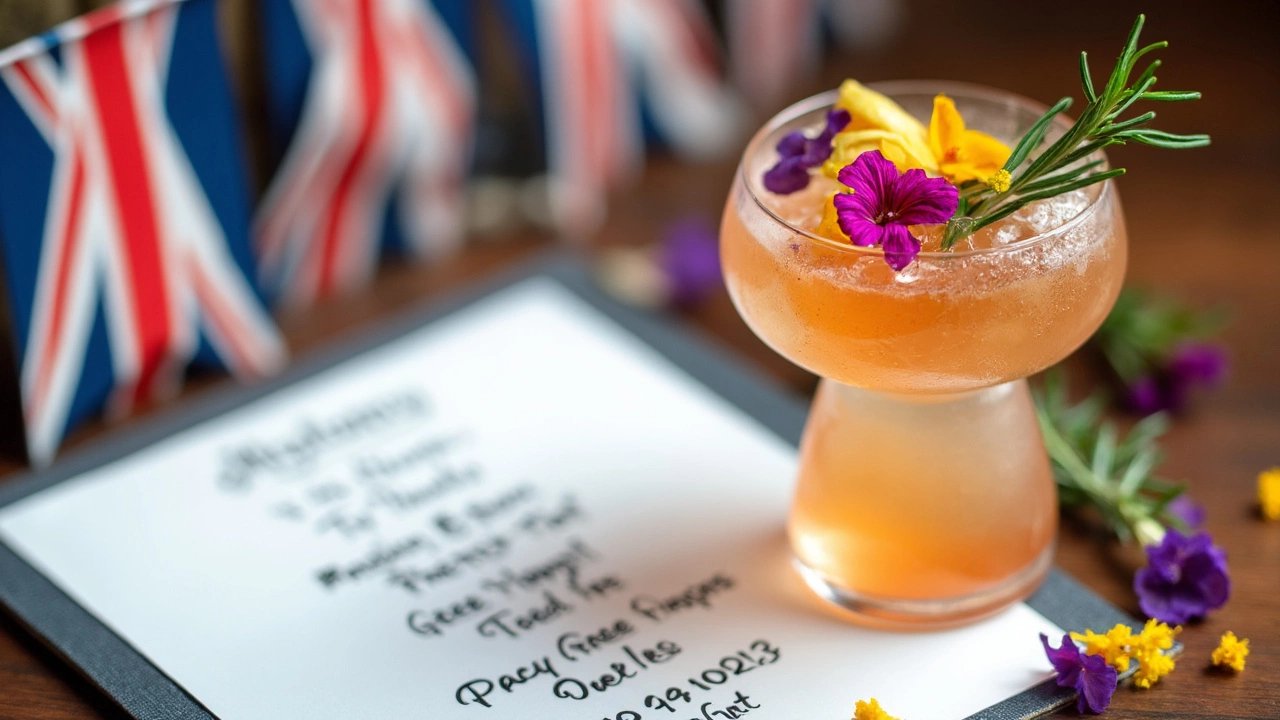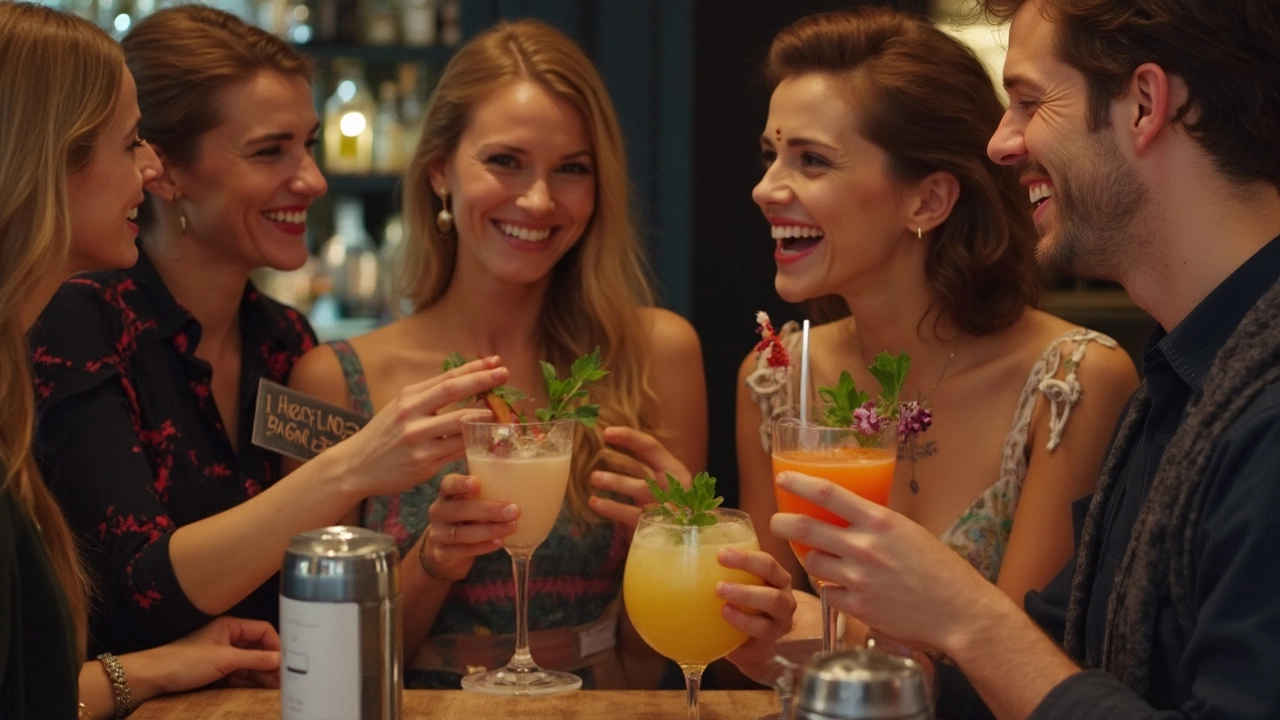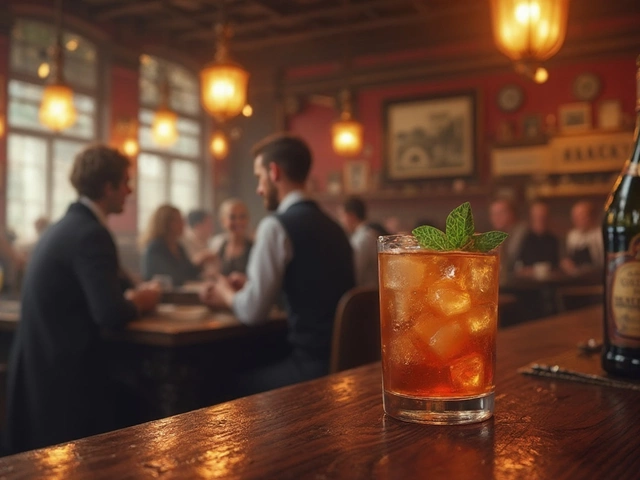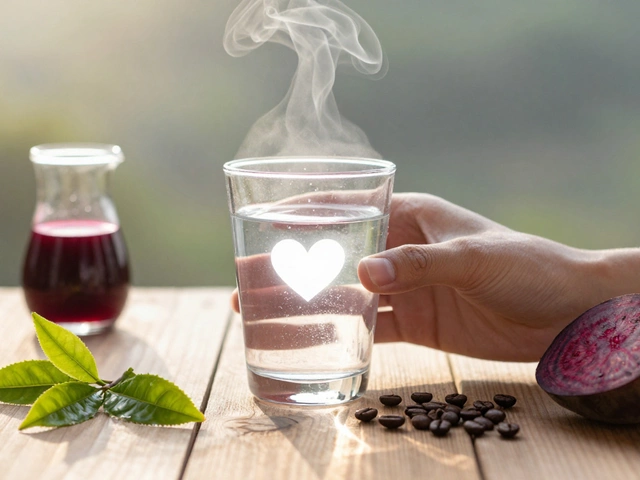Mocktail? Yeah, that word’s everywhere, but people are starting to roll their eyes at it. It kind of sounds like the drink is just pretending to be something else—like it’s not the real deal. And honestly, who wants to feel like they’re stuck drinking the kids’ menu?
This is why new names are popping up—‘zero-proof,’ ‘spirit-free,’ and ‘alcohol-free cocktail’ are just a few examples. Bars and brands are throwing these terms around, hoping to make booze-free sips feel cool, not like a compromise. Drinks aren’t just missing the alcohol anymore. They’re getting their own vibe, their own flavors, and some even taste more interesting than the drinks with liquor.
- Why Are People Ditching 'Mocktail'?
- The Coolest New Names: Zero-Proof, Spirit-Free, and More
- How Names Change the Game
- Tips to Level Up Your Non-Alc Drink Game
Why Are People Ditching 'Mocktail'?
So, why isn’t everyone loving the word ‘mocktail’ anymore? For a start, it literally means “imitation cocktail.” It sounds like a knockoff, not something worth getting excited about. Nobody wants to order a drink that screams, “This is what you get because you're not drinking real booze.” That vibe is a real turn-off for people who've decided to skip alcohol—whether for the night or for good.
Believe it or not, there’s actual data behind this change. A 2023 NielsenIQ report showed that sales for alcohol-free drinks jumped over 30% in the U.S. and UK between 2021 and 2023. People are taking alcohol-free living seriously, and that means they want drinks—and names—that fit how they see themselves: health-curious, adventurous, and definitely not just “faking it.”
There’s also a cultural shift happening. From young adults to athletes, more folks are proudly sober-curious or just taking breaks from drinking. Mocktail feels childish, kind of frumpy—and doesn’t match the energy of fancy new zero-proof bars or cool home bartenders posting their creations online.
- Many bartenders say “mocktail” makes alcohol-free drinks sound boring, even when the recipes are packed with creative flavors.
- Some people avoid it because it brings up old memories—like being stuck with sugary punch at family events as a kid.
- Social media has made “zero-proof” and “spirit-free” trendy, and those terms actually show up on menus at places like Seedlip Bar or Listen Bar in New York.
Here’s a quick look at how attitudes have shifted:
| Year | U.S. Alcohol-Free Beverage Sales Growth | Popular Term Used |
|---|---|---|
| 2018 | +5% | Mocktail |
| 2021 | +12% | Mocktail / Zero-Proof |
| 2023 | +30% | Zero-Proof / Spirit-Free / Alcohol-Free |
The numbers prove it: Folks aren’t just looking for a substitute, they want drinks with their own style—and their own names to match.
The Coolest New Names: Zero-Proof, Spirit-Free, and More
The bar scene isn’t waiting around for the word ‘mocktail’ to sound fresh again. Over the last few years, bartenders and brands have been rolling out new terms that actually sound like something you’d brag about ordering. The most popular ones right now? You’ll hear ‘zero-proof,’ ‘spirit-free,’ and ‘alcohol-free cocktail’ almost everywhere with a decent drink menu. Zero-proof is probably the most popular—so if you’re looking for a drink without the booze but don’t want to sound like you’re skipping out, that’s the go-to name.
Some menus also use ‘temperance cocktails,’ ‘sober drinks,’ or ‘soft cocktails.’ Even the word ‘no-groni’ (a non-alcoholic Negroni) is picking up steam. These cool nicknames are doing more than just being trendy—they help people who aren’t drinking feel like they’re part of the fun instead of just tagging along. A NielsenIQ study from mid-2024 found that sales of alcohol-free drinks went up 32% in just one year in the United States. Turns out, giving drinks a fresh label isn’t just about sounding new—it’s making people actually want them.
Here’s a quick cheat sheet for the most common terms and what they mean:
- Zero-proof: Contains zero alcohol, period. Most bars will use this to mean creative, house-made drinks using fancy ingredients, not just soda.
- Spirit-free: Also 100% booze-free, but sounds more in line with the usual “cocktail” order.
- Alcohol-free cocktail: Super direct. You know exactly what you’re getting—usually a complex mix, not just juice and syrup.
- Temperance cocktail: A nod to history—goes back to the old days, but used in fancy spots that want to make it sound classic.
- No-groni, Nogroni, Faux-jito: Plays on familiar names so you can order something fun but minus the regret.
Check out the rise of these new names in bars and on social media, according to data from 2024:
| Term | Mentions on Bar Menus (%) | Increase From Last Year (%) |
|---|---|---|
| Zero-proof | 58 | +41 |
| Spirit-free | 33 | +29 |
| Alcohol-free cocktail | 27 | +24 |
| Temperance cocktail | 11 | +6 |
Next time you’re skimming the menu or hosting your own party, don’t just ask for another mocktail. Try one of these new names and soak up the fresh vibes.

How Names Change the Game
Let’s be real: what you call your drink shapes how it’s seen and even how it tastes to you. ‘Mocktail’ makes some people think of kiddie punch, not something you’d want at a nice dinner. Research from psychology journals says words play a huge role in how we see our choices. Hotels and bars know this—they started calling drinks ‘zero-proof’ or ‘spirit-free’ to help grown-ups feel like they’re not missing out.
That switch in naming isn’t just about sounding cool. When a bartender slides you a ‘spirit-free negroni’ or a ‘zero-proof mule,’ it signals effort went into making it, just like any other drink. Suddenly, you’re not a leftover guest at the party. You’re getting a drink that stands on its own.
- The term mocktail ranks high on search engines, but some customers feel it’s outdated or makes the drink seem fake.
- Menus that use ‘alcohol-free cocktail’ or ‘zero-proof’ actually get more orders—bars in New York and Melbourne have reported a 20% jump in non-alcoholic sales after flipping the phrasing.
- Popular brands are even printing ‘spirit-free’ on their cans and bottles, so you don’t get stuck with the vibe that you just poured yourself a sad soda.
Words matter. They build confidence for people who don’t want booze but still want to join the fun. You walk up to the bar, order something called a ‘spirit-free mojito,’ and suddenly, it doesn’t feel like an afterthought. It’s just your drink, not a knockoff.
Tips to Level Up Your Non-Alc Drink Game
If you want your non-alc drinks to feel legit—not like a sad afterthought—there are some solid moves you can try. Bars that take zero-proof drinks seriously never just mix juice and soda and call it a day. Here’s how you can do better at home or even when ordering out.
- Start with fresh stuff. Real herbs, squeezed citrus, and seasonal fruit make everything pop. No need for fancy syrups—just toss in mint, basil, or rosemary and see what you like.
- Don’t skip bitters. Fun fact: Most aromatic bitters have alcohol, but there are a bunch of new booze-free options now. They’re a cheat code for adding adult flavors.
- Ice matters more than you think. Cloudy fridge cubes water down your drink fast. Use big, clear ice cubes for drinks that don’t taste like watered-down lemonade.
- Garnish like you mean it. People eat and drink with their eyes too. Orange peels, berries, cucumber ribbons—go wild. It makes the experience feel special, not second-class.
- Try a few specialty mixers. There’s a surge in non-alc spirits—stuff like Seedlip, Monday, or Lyre’s. These add depth so you’re not just sipping juice. Watch for notes like ginger, pepper, or even smoky flavors.
Here’s a quick comparison on what people are looking for in modern alcohol-free drinks versus the old-school “mocktail”:
| Old-School Mocktail | New Non-Alc Trend |
|---|---|
| Shirley Temple, club soda & juice | Botanical flavors, zero-proof spirits |
| Very sweet, neon colors | Balanced flavors, fresh ingredients |
| No real presentation | Styled garnish, craft glassware |
The best argument for leveling up comes from Derek Brown, noted booze-free bar pioneer, who said,
“People want a drink that’s thoughtful—it doesn’t need alcohol, but it deserves real flavors, good presentation, and a spot on the cocktail menu.”
So, next time you’re out or mixing up something at home, remember: a mocktail is whatever you make it. Go bold, experiment, and you’ll always get something that feels worth sipping.


